
The reopening of the People’s Republic of China (PRC) will boost regional economic growth through supply chain linkages and demand for goods and services. Growth in the PRC is expected to rebound to 5.0% this year from 3.0% in 2022. Healthy domestic demand in India will also support regional growth: India is forecast to grow by 6.4% in 2023. Growth in the Caucasus and Central Asia, the Pacific, and Southeast Asia will be lifted as tourism recovers. Meanwhile, headline inflation is expected to decelerate from 4.4% in 2022 to 4.2% this year and 3.3% in 2024.

"An increasing number of National Financial Inclusion Strategies are now highlighting the need to promote women’s financial inclusion. However, this new analysis from WBL and CGAP finds that they could do more to promote access to credit for women entrepreneurs, and to enhance the national-level collection and analysis of sex-disaggregated financial data."
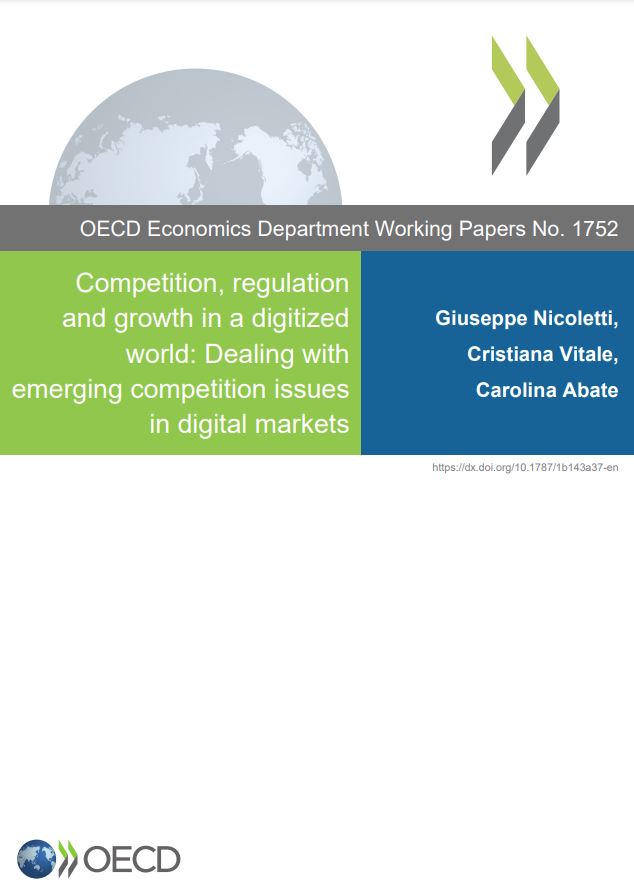
Dealing with emerging competition issues in digital markets
Digital markets have raised a number of new competition challenges. Ex-post competition policy appears not to be able to address them in their entirety and with the necessary speed. There is considerable consensus, among academics and policy-makers, that ex-ante regulatory policies are needed to avoid competition being stifled in these markets, with a negative impact on productivity and innovation. As a result, major OECD economies are discussing or have approved regulatory proposals with the aim to foster contestability and fair trade in digital markets.
Read more … Competition, regulation and growth in a digitized world

Geopolitical instability, rapidly maturing and emerging technologies, lack of available talent, and increasing shareholder and regulatory expectations represent some of the significant challenges that concern cyber and business leaders. If the findings of last year’s Global Cybersecurity Outlook reflected the lingering impact of the pandemic, and the effects of rapid digitalization, this year’s Global Cybersecurity Outlook reveals concerns about an increasingly fragmented and unpredictable world.

Not out of the woods yet
"Output in the EBRD regions is estimated to have grown by 3.2 per cent year-on-year in January-September 2022 (and around 2.4 per cent in the year as a whole), slower than in 2021 as the war on Ukraine took its toll and the post-Covid recovery has mostly run out of steam (in 2020, the region’s output contracted by 2.4 per cent).
Output in the EBRD regions is expected to grow by 2.1 per cent in 2023 as high gas prices and persistent inflation weigh on the economic outlook.
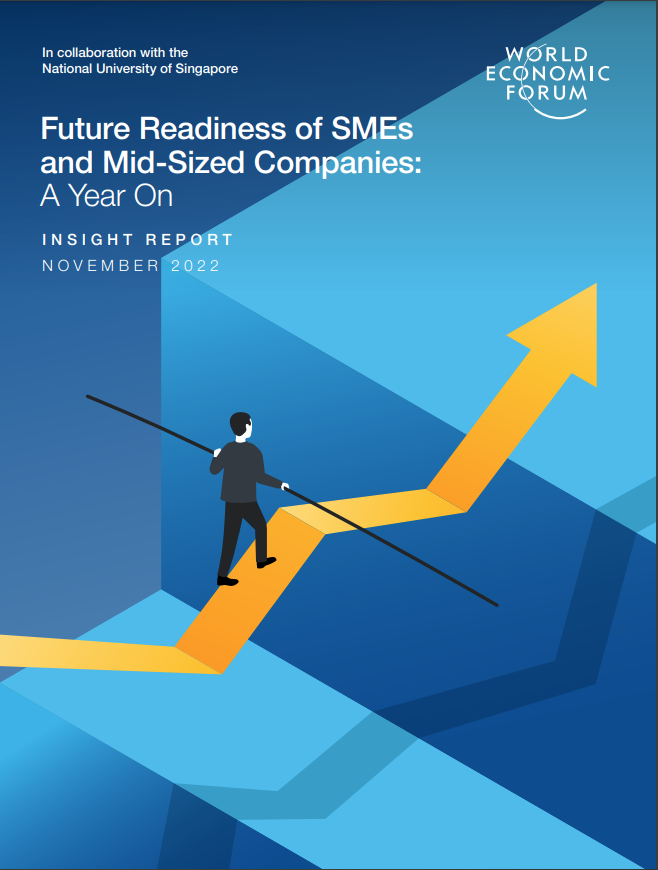
"Small- and medium-sized enterprises (SMEs) and mid-sized companies represent 90% of all companies and are responsible for close to 70% of jobs and GDP globally, and yet, as a result of their smaller size, they are often the most affected by economic shocks and turbulence.
This report, written in collaboration with the National University of Singapore, sheds light on how SMEs and mid-sized companies can develop strategies and pathways to increase their future readiness. The report recommends a three-pillared approach, which allows SMEs and mid-sized companies to increase their resilience while exploiting their natural agility as a competitive advantage in times of uncertainty.
Read more … Future Readiness of SMEs and Mid-Sized Companies: A Year On
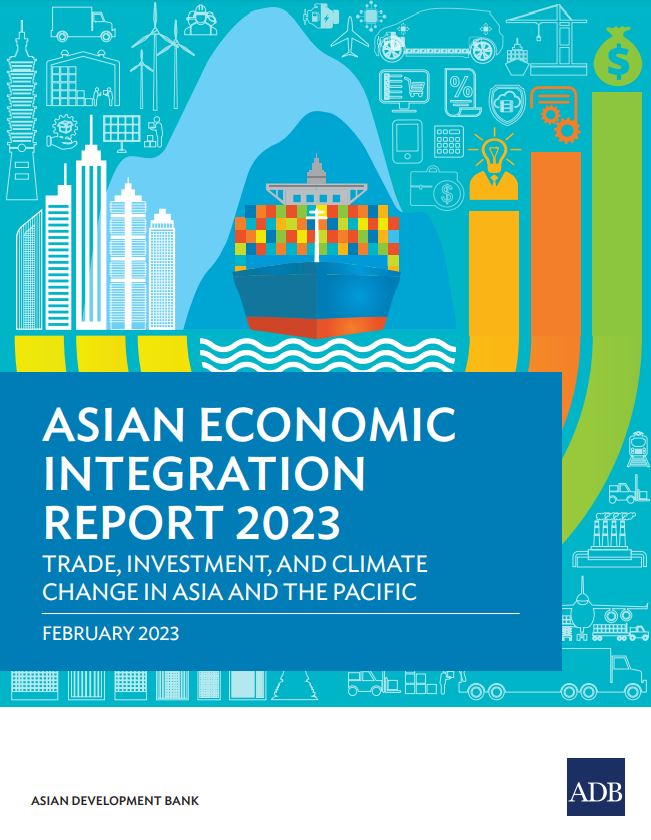
"This report shows how smart trade and investment policies, and regulatory cooperation in the Asia and Pacific region can help economies tackle climate change, recover from the pandemic, and support resilient and sustainable development.
Analysing topics including global value chains, investment, the movement of people, and regional cooperation initiatives, it outlines the economic and environmental challenges the region currently faces. It explores how trade and investment policies can support climate action and highlights why a joined-up approach is essential to help deepen the digital economy, strengthen supply chains and foster greener businesses, markets, and trade."
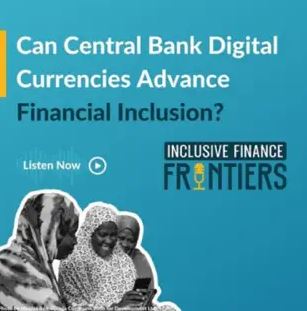
"Central banks have been eying the emergence of privately issued digital currencies with a mix of excitement and anxiety and some began experimenting with their own versions of crypto: central bank digital currencies (CBDCs). Advocates say CBDCs offer an alternative to private digital currencies that will enable central banks to retain their control over national monetary supplies, better combat money laundering and fraud, and even advance financial inclusion.
Read more … Will Central Bank Digital Currencies be a Game-Changer for Financial Inclusion?
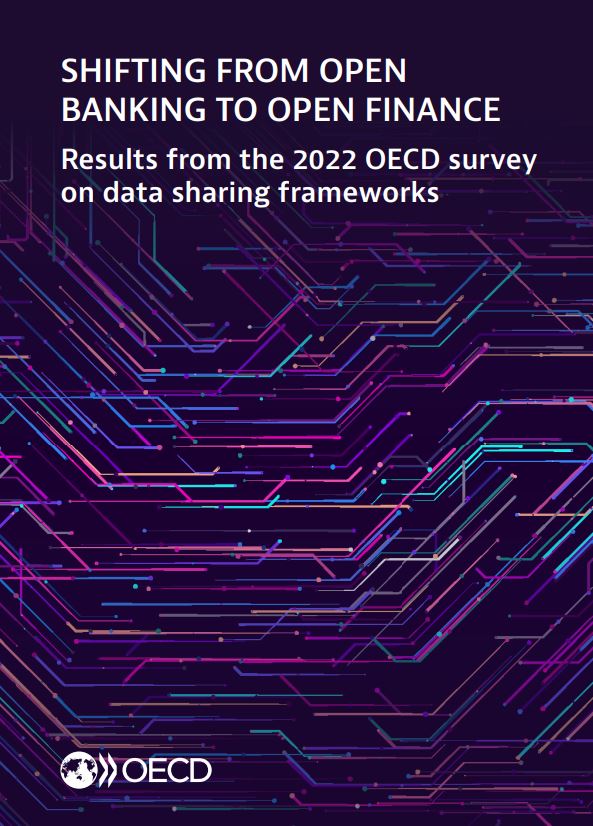
Results from the 2022 OECD survey on data sharing frameworks
Data sharing arrangements are evolving from open banking to open finance. This next stage of the evolution builds upon existing frameworks to expand data access and data source sharing beyond payment/transaction data, while also including other areas of financial activity (e.g. insurance). This paper analyses the different types of data sharing frameworks currently available in OECD and non-OECD member countries. It examines the specific rules and conditions of such frameworks around data access and sharing, consumer safeguards, and operational and technical specifications. It also discusses learnings from existing frameworks on the impact that such arrangements have had on customers and financial markets.

"We quantify the commute time savings associated with work from home, drawing on data for 27 countries. The average daily time savings when working from home is 72 minutes in our sample. We estimate that work from home saved about two hours per week per worker in 2021 and 2022, and that it will save about one hour per week per worker after the pandemic ends. Workers allocate 40 percent of their time savings to their jobs and about 11 percent to caregiving activities. People living with children allocate more of their time savings to caregiving."

"The report provides an overview of policy and market practice to enhance transparency, integrity, and efficiency in sustainable finance and to foster the market’s development. It discusses efforts to align taxonomies and standards; support transition finance; adapt to the trend toward environmental, social, and governance (ESG) investments; and implement information disclosure and integrity requirements."
Read more … Asia’s progress toward greater sustainable finance market efficiency and integrity

"Nearly 500 million micro and small enterprises (MSEs) are estimated to be operating around the world. Access to credit and other financial services is critical to the growth and sustainability of these businesses, and consequentially to the low-income and vulnerable populations which rely on MSEs for their livelihoods. Yet despite decades of efforts and some notable successes in expanding MSE finance, the credit gap remains an estimated 4.9 trillion U.S. dollars.
Read more … The Promise of Fintech for Micro and Small Enterprises
- Measuring the value of data and data flows
- Mongolia Business Environment and Competitiveness Assessment Report: Implementing Business Environment Reforms for Economic Recovery
- Financing SMEs for sustainability: Drivers, Constraints and Policies
- Transformative Solutions and Green Finance in the People’s Republic of China and Mongolia


